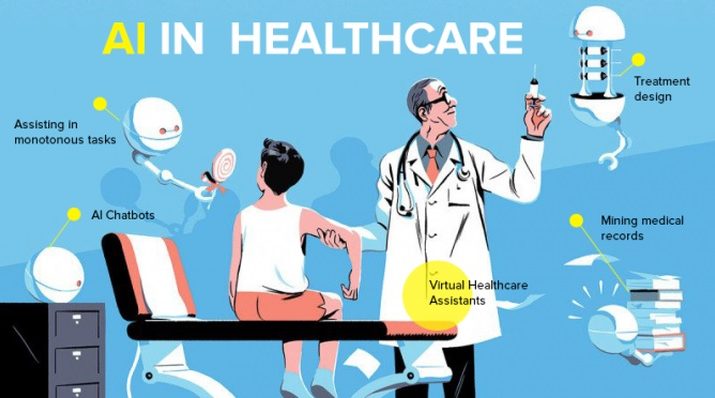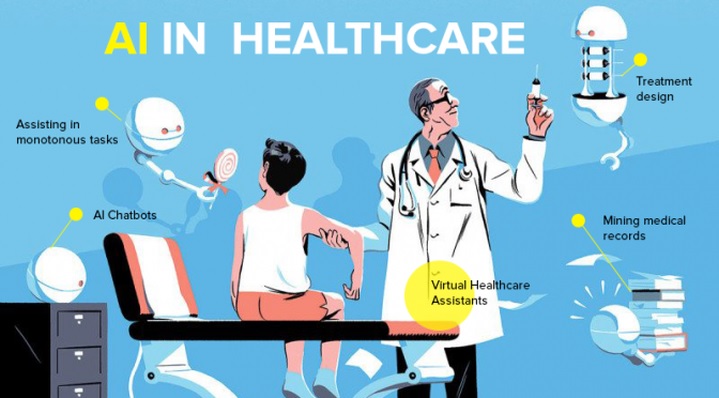In this era of advanced technology, the healthcare field is under enormous pressure to improve patients’ quality of care and experiences. This involves investing in intelligent solutions for better decision-making in times of emergencies. For such scenarios, Artificial Intelligence and data annotation help increase the overall quality of healthcare and lower costs.
Artificial intelligence has risen to a relatively inextricable position in the medical field. Even in the palliative care sector, AI systems are gaining ground, complementing existing software such as for hospice care management. For decades, the healthcare sector has exploited AI to expedite administrative processes. They’ve been assisting doctors in reaching accurate diagnoses and recommending treatments, and it can be trusted to perform medical annotations.
What are AI and Data Annotation?
If defined in the simplest words possible, Artificial Intelligence is all about simulating human intelligence processes carried out by machines, especially computer systems. Although the simulation is nearly perfect, there is still a need for humans to collect raw data and feed them into AI so that the machines can perform human-like actions.
This is where AI data annotation comes into action because it is a process where a human annotator gets involved in the raw data set and adds labels, categories, and other contextual elements so the machines can easily read and perform accordingly. Some types of data annotation include:
- Image annotation
- Text annotation
- Audio annotation
- Video annotation
Usage of AI in Healthcare
Artificial intelligence software can help make valuable medical decisions based on collected data. Doctors gain better perspectives and deliver more-sound treatment plans more quickly.
Here are some of the most prominent uses of AI in healthcare:
1- Lowering the costs of healthcare:
With Artificial Intelligence, patients can now quickly know what to do before surgeries, as proven by PrehabAI that is developed by Peerwell. This PrehabAI app takes all the necessary information from the patients and prepares a plan that the patients can follow daily to get them ready for the surgery. If apps like these don’t exist, the hospital staff will have to create all the plans, and such procedures can require patients to stay in the hospital for days, increasing their overall treatment costs.
A single platform across the hospital system can streamline processes, eliminating the need to hire personnel to handle these tasks. The accuracy in data collection and dissemination will also help to prevent errors that could lead to medical malpractice lawsuits because of incorrect diagnoses.
The technology may also help in identifying and preventing fraud, which can result in huge losses to the organization if left unnoticed.
2- Patient’s Intake Management:
With Covid-19 making all the usual things entirely different, the same is the case for direct interaction of doctors with patients. To reduce the exposure of the virus to doctors and patients, many hospitals are now using robots to notice all the necessary symptoms by taking the temperature of the patients and detecting if there is any chance of virus. This helps in saving loads of time for the doctors and the salary costs of the hospital management.
The risks of being exposed to anything novel can be reduced with this technology. Before admission, patients can answer survey forms assisted by chatbots in the hospital app to gather all necessary information so that the next steps would be seamless and involve less contact and exposure.
3- Medical Imaging:
Doctors reading medical images like X-rays, CT scans, MRI takes quite a long time of almost 30 minutes to determine whether there is something serious to worry about. This is not a problem anymore since AI performs the same duty as humans, which is a lot faster. The process may take around 15 seconds to determine if there is something life-threatening or potentially harmful for the patients.
Conclusion
The use of AI data annotation is now proving to be potentially significant to assist healthcare workers in many aspects when it comes to taking care of patients and making a different diagnosis. There is no denying that the diagnoses made by AI are the same or even better compared to humans; however, AI has not yet completely replaced humans in healthcare, and this may take a significant amount of years to happen.


